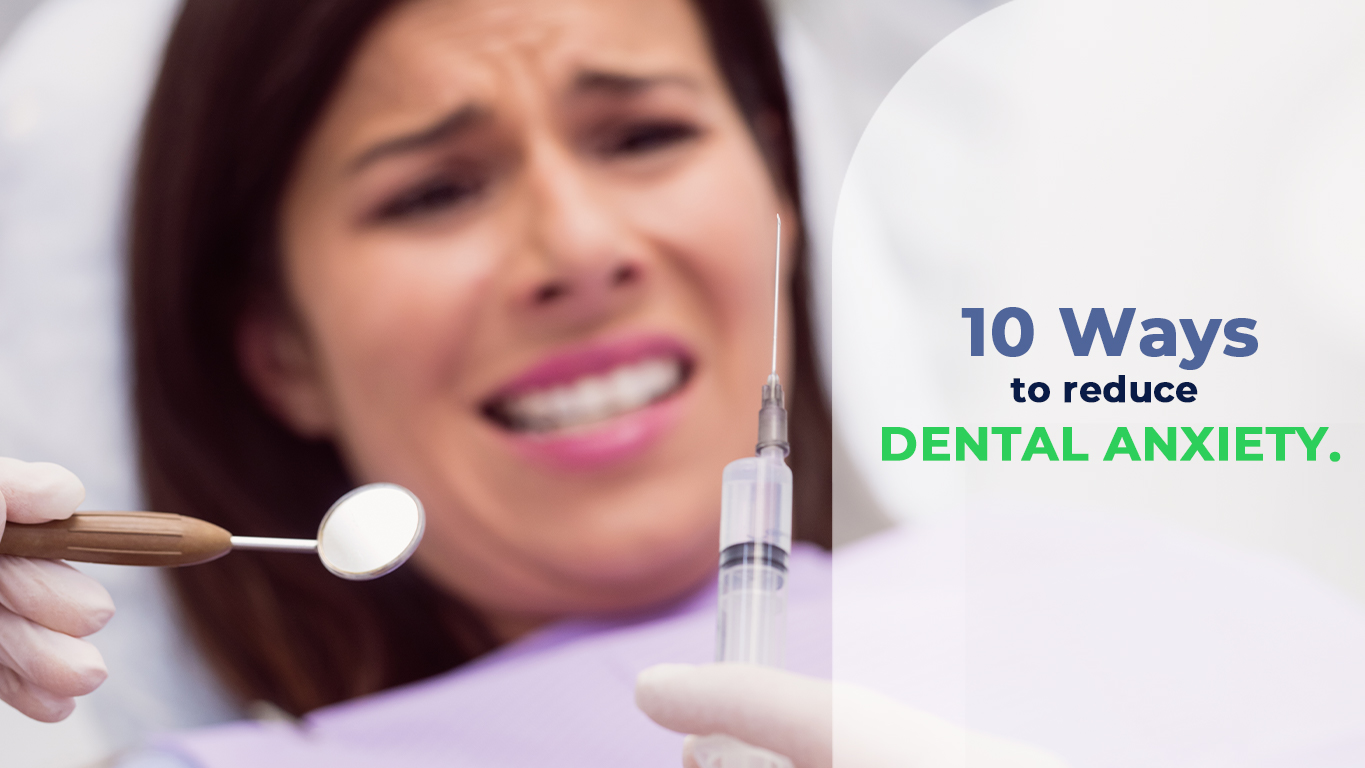10 Ways to Reduce Dental Anxiety.

For you to maintain healthy gums and teeth, regular dental check-ups are necessary. However, dental fear and anxiety sometimes get in the way of people making routine dental visits. The uneasiness that comes with dental anxiety makes people shy from making dental appointments. Some feel discomfort, stress, fear, and panic whenever they think of visiting the dentist’s office.
However, this should not be the case. Avoiding dental visits may worsen an already existing dental condition. This article discusses the top 10 ways you can use to reduce dental anxiety.
1. Relative analgesia is also known as happy gas or laughing gas.
During dental procedures, nitrous oxide can aid people to relax. A mask will be fitted to your face enabling you to breathe a mixture of nitrous oxide and oxygen. It kicks in within a few minutes and quickly wears off. You will experience a feeling of relaxation and still be awake. However, if you find the nitrous oxide sedation sensation unpleasant, you can communicate to your dentist, who will consider other options.
2. Anxiety relieving medication.
Sometimes dentists can prescribe oral anxiety-relieving medication to aid patients with anxiety relaxation. Before the dental appointment, a small, short-acting single dose is taken one hour prior.
3. Conscious Sedation.
You will receive medication via a drip that is placed into a vein of the arm or hand. Intravenous sedation aids you in relaxing, and you might fall into a light sleep. After the procedure, the probable side effects are drowsiness and nausea. Some medications or pre-existing medical conditions will determine whether you will have intravenous sedation and the suitable type of sedation.
4. General anaesthesia.
This involves having the patient fully asleep in order to carry out the dental treatment. It does not help you master how to overcome dental fear and anxiety nevertheless; it is a good alternative for some people.
5. Deep breathing exercises.
This involves severally slowly inhaling through the mouth with your eyes closed, holding it in for a few seconds, and slowly exhaling through your mouth. Taking deep breaths will help you to feel relaxed, stay calm and ease tension during dental visits.
6. Meditation.
Entails a state of heightened awareness and muscle relaxation to release tension and stay calm and focused. You can meditate before and during the dental procedure.
7. Guided Imagery.
Envisioning happy thoughts and past positive memories will help you stay calm and feel relaxed during a dental appointment.
8. Hypnosis.
This involves the creation of a state of calmness by muting the conscious mind. A trance state is achieved through guided relaxation. A hypnotherapist uses the power of suggestion to help you curb anxiety.
9. Distraction.
Having something to distract you can help you maintain calmness during a dental appointment. This includes watching television during the check-up, listening to music, or even conversing with your dentist.
10. Take a friend with you.
A friend can accompany you; their support and presence will help you worry less. You may not talk during the dental treatment, but you will feel safe, relaxed, and comfortable if they are around.
Bottom Line
Dental fear and anxiety can affect anyone, both adults and children. Seeking suitable remedies to mitigate this uneasiness is important since dental fear and anxiety gets in your way of getting dental care. Schedule your dental appointments at Springvale Dental Clinic and have all your dental problems resolved.



